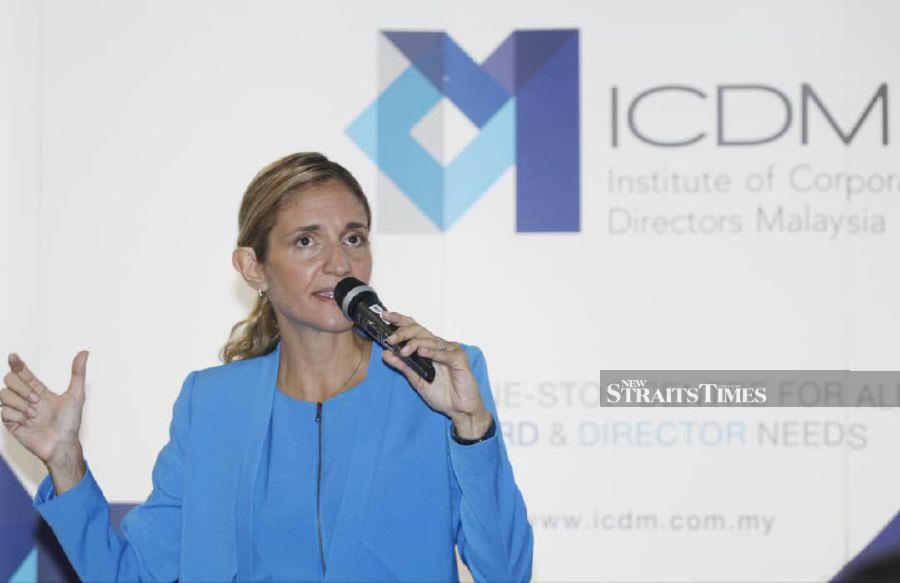KUALA LUMPUR: A survey co-launched by the Institute of Corporate Malaysia (ICDM) has found that market and operating risks along with economic uncertainty in Asia are the top three challenges that keep directors of Malaysian boards awake at night.
The inaugural BOLD 3.0: Future- Fluent Board Leadership in Asia released today showed 21 per cent of 120 Malaysian board leaders in the survey, believed that market risk was the main factor, followed by operating risk (20 per cent) and economic uncertainty in Asia (18 per cent).
The concerns for Malaysian boards was also similar to five other regional peers, namely India, Singapore, the Philippines, Sri Lanka and Vietnam.
The BOLD 3.0: Future- Fluent Board Leadership is a research study produced by the Centre for Creative Leadership (CCL), in partnership with ICDM and other institutes of directors in Singapore, the Philippines, India, Vietnam and Sri Lanka.
It was launched in conjunction with the inauguration of ICDM headquarters at KL Eco City today by its chairman, who is also the former Securities Commission Malaysia (SC) chairman Tan Sri Zarinah Anwar.
According to the survey, the board of directors in Asia were mostly worried about hits that the organisation may take due to sudden changes in equity, currency, inflation and interest rates.
“They are also worried about the more-than-ever-before probability of loss due to changes in demand, costs, obsolescence and prices,” it said.
The survey also showed board leaders are worried about economic uncertainty, owing to a comparatively slower economic growth in Southeast Asia and China as well as the impact of a trade war and the general negative sentiment surrounding economic growth.
Apart from that, the survey found nine per cent of the respondents saw cybersecurity as among the major concern, while eight per cent of them concerned about the global competition as well.

“Technology remained a key concern in most boards, especially issues relating to cybersecurity, which was deemed as a risk of most concern to financial institutions,” it added.
Meanwhile, the survey also showed that Malaysian boards spent too much time on short-term policies, plan and strategy instead of the long-term ones.
It said the boards spent six per cent of their times on short-term planning, instead of three per cent.
“While for the long- term planning, the survey showed the boards spent 12 per cent of their time on that, and in fact, they should spend a longer time of 15 per cent for that,” according to the survey.
Commenting on that, ICDM president and chief executive officer Michele Kythe Lim said many listed companies in the country were too focused on short-term issues such as the quarterly financial results.
Lim hopes the survey create greater awareness for the companies to focus more on other things such as technology disruption.
“A lot of time the disruption is coming in and you don’t see it, because you just focus on your short term quarterly results, managing financial and risks, and you don’t see other things that are impacting the company such as technology disruption, or corruption within your company,” she said.
Hence, she hopes the survey would form a basis to evaluate the board and align their capabilities to promote effective leadership.
Meanwhile, CCL managing director and vice-president for Asia Pacific Elisa Malis said the survey showed eight per cent of Malaysian boards do not have any evaluation process.
The finding was far better than some countries which saw more than 40 per cent of their boards do not have any types of the evaluation process, according to her.
However, she said only four per cent of the local boards have individual evaluation by external consultant.
“This is what we want to see the improvement in the next step, as when it comes to (corporate) governance scandals, having external evaluation really helps the board located itself more critically and uncover its blind spots,” she said. -- Bernama
















